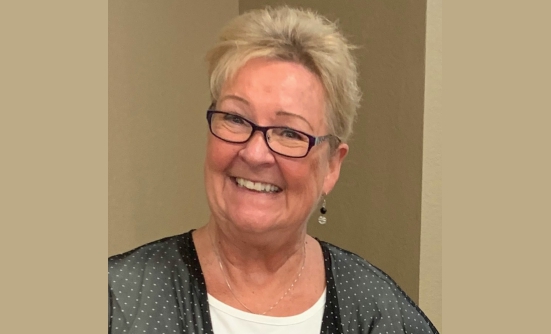
Oral health challenges are common with treatments used for many types of cancers. This is especially true for people with head and neck cancers. The intensity of the oral side effects can have a significant impact on the patient’s quality of life, affecting their physical, emotional, and financial well-being.
Oral cancers are typically treated with surgery, radiation, and many times, chemotherapy. Although the saliva tends to return to normal after chemotherapy has been completed, radiation can permanently damage the salivary glands, which can change the amount of saliva produced in the mouth and its quality, which may lead to dry mouth and has important implications to our health.
Why Is Dry Mouth a Problem?
A dry mouth is much more than just a comfort issue and can affect our overall health. Healthy saliva has many protective effects that promote the digestive process, help the taste buds function properly, and lubricate the oral tissue to prevent tissue trauma and assist in swallowing and speaking.
Healthy saliva also aids in healing the oral tissue (inside the mouth), reduces the risk of infection (bacterial, viral, or fungal), maintains a stable pH level in the mouth, and plays a role in the remineralization process of the teeth, to keep them strong.
Therefore, depending on the severity of the condition, dry mouth complaints can include:
- Difficulties with eating
- Increased cavities and infections in the mouth
- Pain and discomfort
- The feeling of choking
- Restless sleep
- Self-esteem issues
- Strained social interactions
- Expensive dental treatment needs.
The best defense against the problems associated with a dry mouth is a proactive approach. Your oncology care team can anticipate your risks for dry mouth, based on your treatment plan and medical history. Implementing simple strategies early in the treatment process, before the problem of dry mouth has a chance to develop, can help to reduce the negative impact on your life. Here are some tips to help you avoid a dry mouth.
Dietary and Lifestyle Habits Play a Big Part
It is important to stay hydrated, by drinking plenty of water and avoiding caffeine and alcohol. Also, smoking and vaping can dry the mouth and the throat tissue.
Food preparation can help to ease eating challenges. Using sauces, gravies, and broth can soften and lubricate foods, aiding in chewing and swallowing.
Mouth-breathing is a huge contributor to dry mouth. Try to breathe only through your nose, if possible. Keep your nasal passages clear and lubricated, by using a humidifier, especially at night, and drug-free saline nasal sprays, such as Xlear.
Review Your Medication List
Many prescription and over-the-counter medications cause dry mouth. Ask your healthcare providers to review your medication list to see if any adjustments can be made to avoid dry mouth.
Ask if there are alternative medications that will provide the same benefit, but fewer side effects and without ingredients that may damage your teeth. This includes rinses or liquid medications that may be prescribed during your treatment.
Check Specific Ingredients
Some oral care products can increase the risk for dry mouth and mouth sores. Specifically, avoid ingredients such as alcohol, tartar control, and whitening agents. Instead, use toothpastes or other products that are designed for a sensitive mouth and are free of sodium lauryl sulfate (or SLS), which is a common detergent that is found in some toothpastes and rinses (as well as in other products) that can dry and irritate the tissue in the mouth. Oral care products with a neutral pH level (6.5-7.2 pH) help to protect the teeth and will be less likely to burn or sting.
It may be difficult to tolerate strong flavors in oral care products, such as mint or cinnamon. Oral care products that are completely unflavored, such as CloSYS Ultra Sensitive Oral Rinse, or mild flavors such as bubblegum or berry, may feel the most agreeable.
Sucking on candies and mints, such as Dr. Heff’s Remarkable Mints or Ice Chips, can help to stimulate saliva. Look for products that contain natural sugar substitutes called xylitol or erythritol. These sweeteners have been shown to soothe and lubricate tissue; balance the oral pH level to protect against cavities; safeguard against infections, by reducing the number of harmful germs in the mouth; and provide a sweet flavor that tells the brain to produce saliva.
Because xylitol is digested as a fiber, introduce it slowly into your routine to avoid stomach irritation, and keep it away from dogs. Xylitol is not appropriate for a dog’s digestive system (similar to chocolate, raisins, or grapes).
Avoid using lemon drops, cough drops, or similar products. Even sugar-free versions are often acidic and can damage the teeth, especially in a dry mouth.
Get Your Dental Team Involved Early
Be sure that your dentist and other dental providers are aware of your cancer diagnosis and treatment plan. Your dentist and hygienist can help you keep your teeth strong and reduce the risk of infection through routine preventive care, prescription fluoride applications, and oral hygiene instructions.
It is important to consider your blood counts when performing oral hygiene procedures at home, and when seeing your dentist. Consult your oncology care team if your blood counts are low, to determine if you can safely continue with all the methods of personal and professional dental care.
People with severe dry mouth can benefit from receiving preventive dental care every 3 or 4 months. This increased frequency of professional care can be an effective way to identify problems early and keep treatments conservative.
Keeping your mouth clean in between dental visits, with daily hygiene routines, is vital. The germs inside dental plaque thrive in a dry mouth to attack teeth and tissue.
Use toothpaste and oral rinses, such as CloSYS, that have been shown to penetrate plaque. If your toothpaste and oral rinse don’t cut through the plaque, they won’t get to the bacteria that can harm teeth and gum tissue. Your dental hygienist can guide you about keeping your teeth clean according to your specific needs.
Reduce Harmful Dental Plaque
To reduce harmful plaque on your teeth and gum tissue, follow these activities:
- Brush your teeth 2 to 3 times daily with an extra-soft compact toothbrush.
- Replace the toothbrush often, at the first sign of bending or fraying of the bristles.
- Clean between your teeth with floss or with other interdental cleaners.
- Wash away food debris with water flossers.
Over-the-counter oral moisturizers are available as sprays, gels, rinses, and lozenges, such as Spry Moisturizing Spray or XyliGel. Ask your dental team for recommendations, and try to stay open to trying different products until you find what works best for you.
Advocate for Yourself
Know that you are not alone. Many resources are available for additional support outside of your immediate healthcare team. Several organizations provide information for patients with cancer and their families to help navigate through the treatment process and the long-term effects of your specific type of cancer. Joining a local or online support group can provide valuable insight and tips from other people who have dealt with similar situations.
As a Registered Dental Hygienist of nearly 30 years, I know how confusing it can be for patients when selecting oral care products, and how important it is to find trusted resources for recommendations. That is why I created the online resource, Side Effect Support website (https://sideeffectsupport.com), to provide easy access to information, virtual dental care with licensed dentists, and oral hygiene supplies that have been deemed appropriate for the unique needs of patients with cancer, caregivers, and healthcare providers to reduce harmful oral side effects of treatments and improve quality-of-life and treatment outcomes for patients.
Print the free “Cancer Treatment & Oral Health” brochure under the Resources tab.
Knowledge is power in your fight against cancer. By making changes to your oral care routine, you can reduce harmful side effects to improve treatment outcomes and, most important, improve your quality of life!
For more information visit https://sideeffectsupport.com.
Key Points
- Oral health challenges are especially common for people with head and neck cancers, and are present in many other cancer types as well
- Healthy saliva aids in healing oral tissue, reduces the risk of infection, maintains a stable pH level in the mouth, and assists in the remineralization process of teeth
- Staying hydrated is extremely important in maintaining oral health, so avoiding caffeine and alcohol is a good idea
- Mouth-breathing is a huge contributor to dry mouth
- Ask your healthcare providers to review your medication list to see if any adjustments can be made to avoid dry mouth
About the Author
Jill Meyer-Lippert is the 2014 recipient of the Sunstar Americas/RDH Award of Distinction and a member of several dental and cancer-related organizations, including the Registered Dental Hygienist Advisory Board for the Oral Cancer Foundation, Teethcloud Thought Leaders, Wisconsin Cancer Collaborative, and the Triage Cancer Speakers Bureau.









